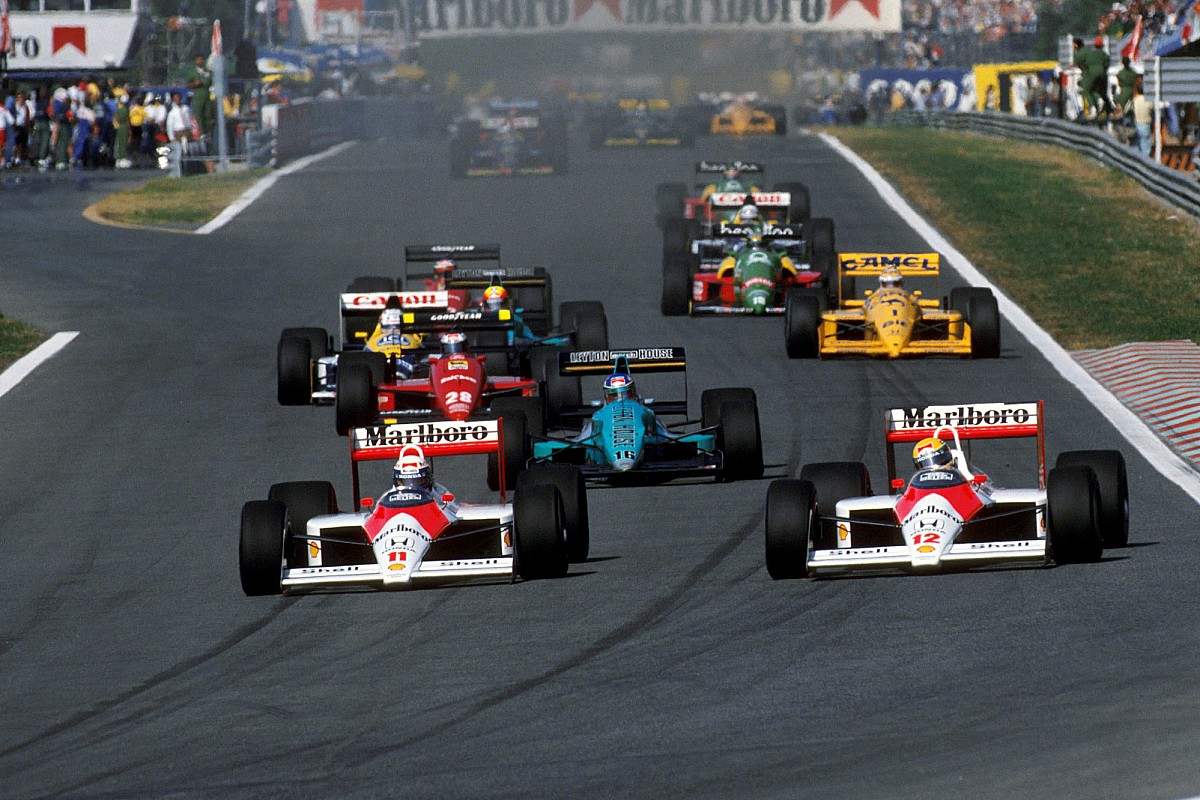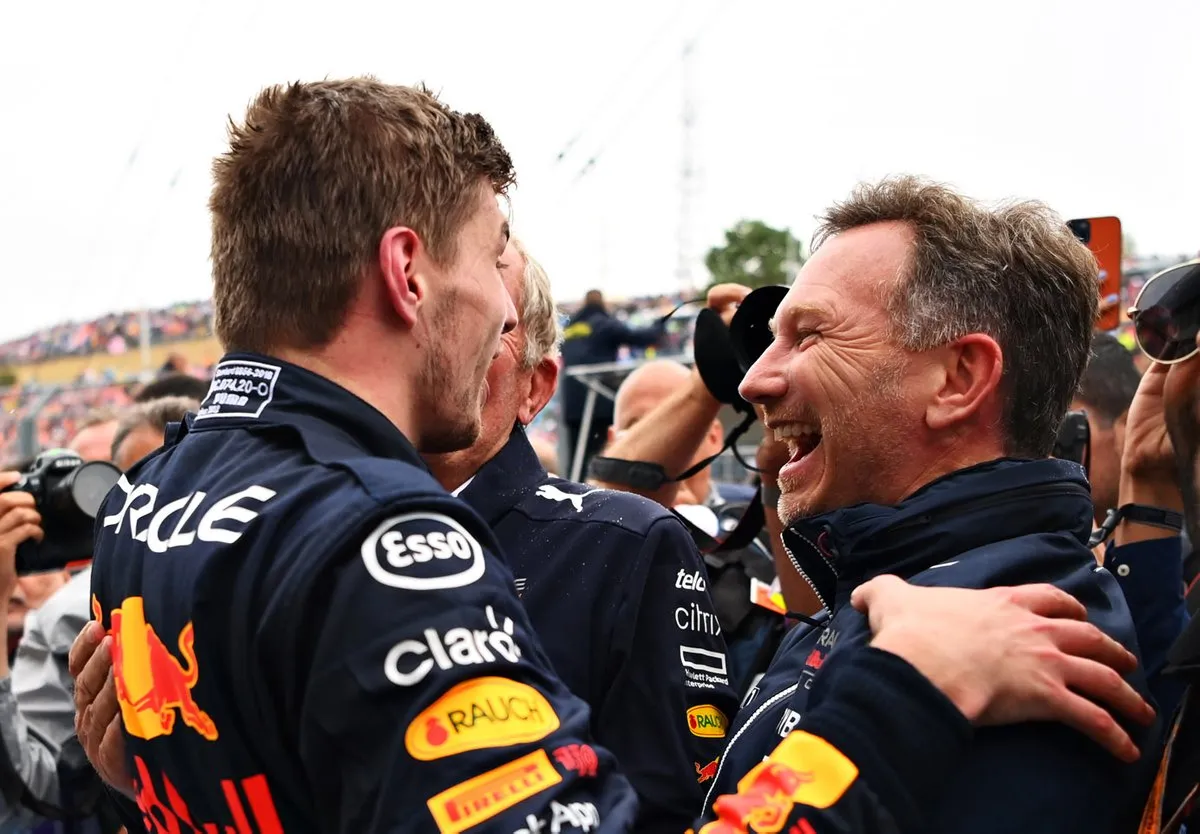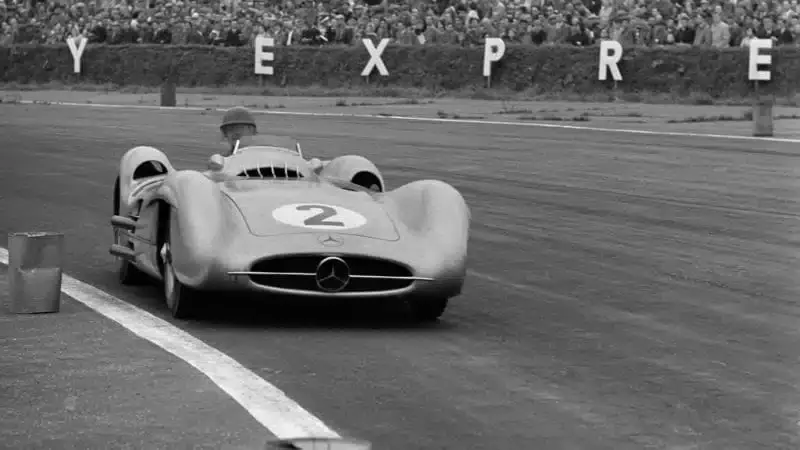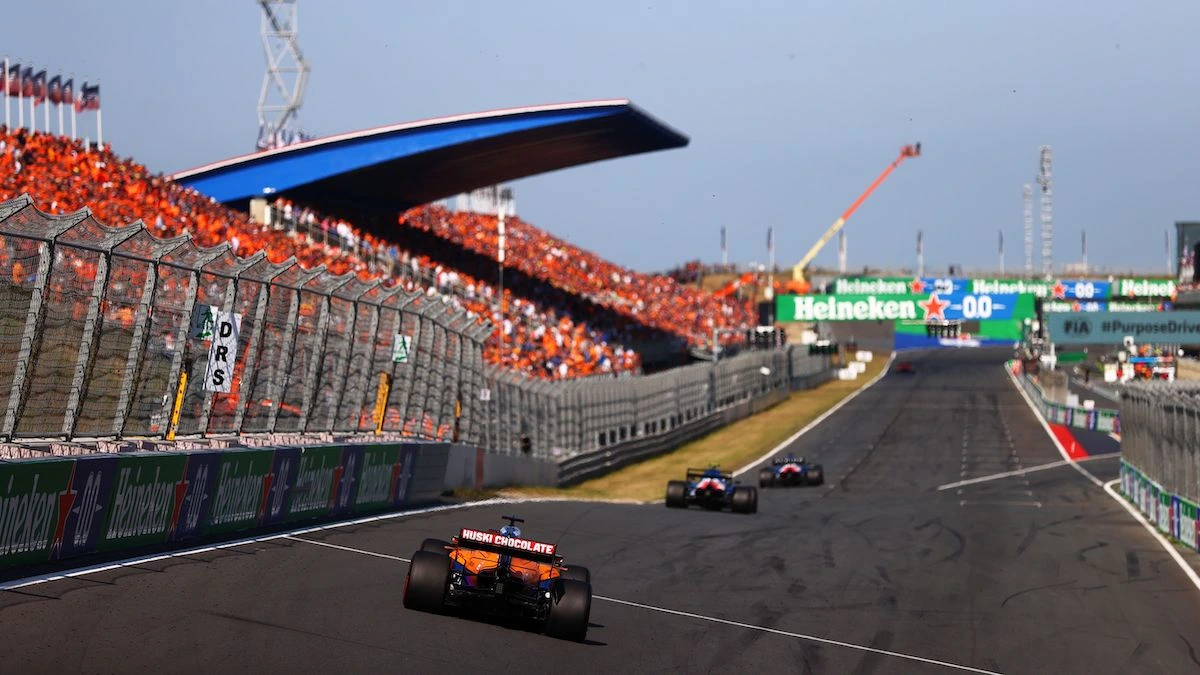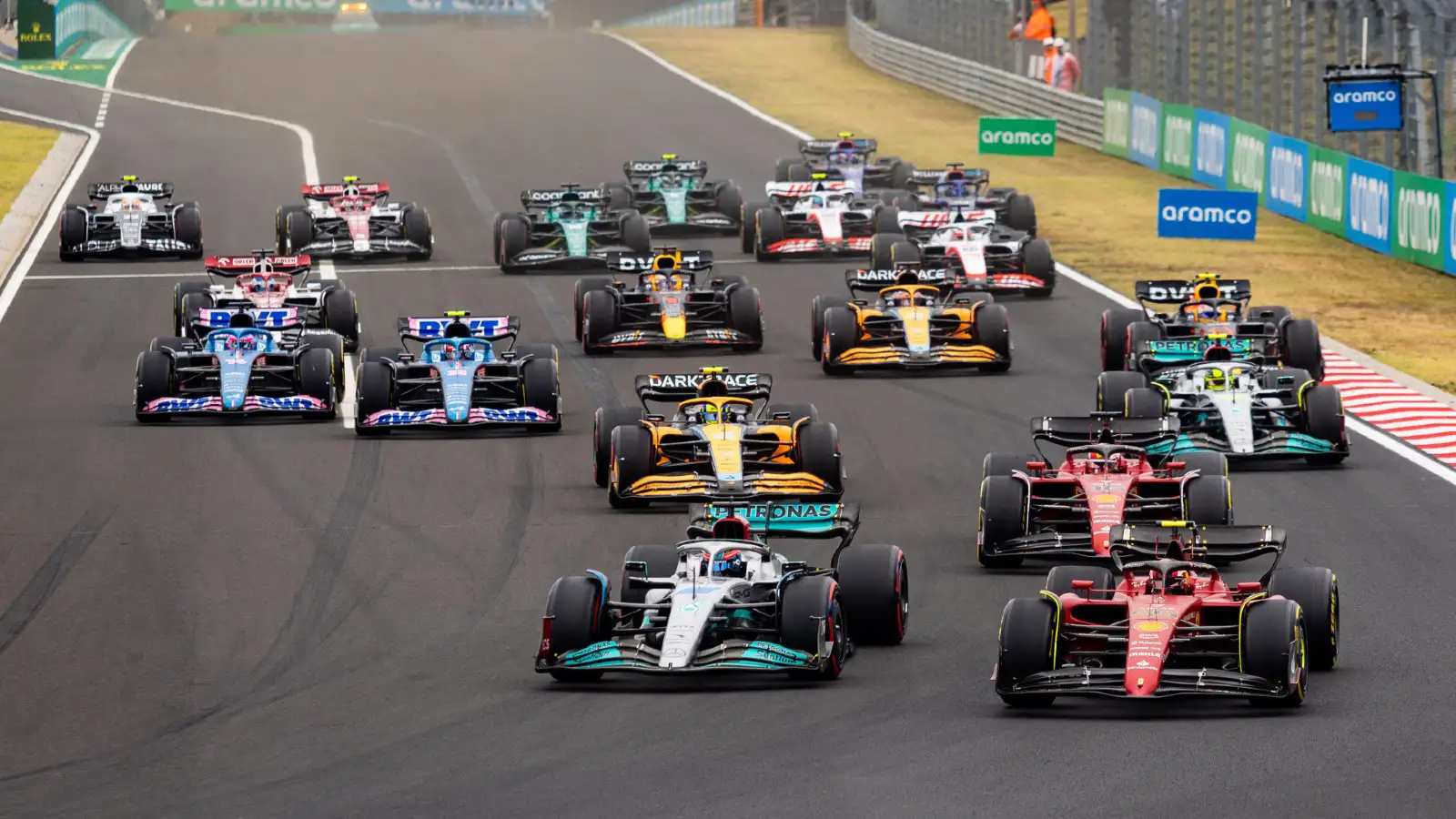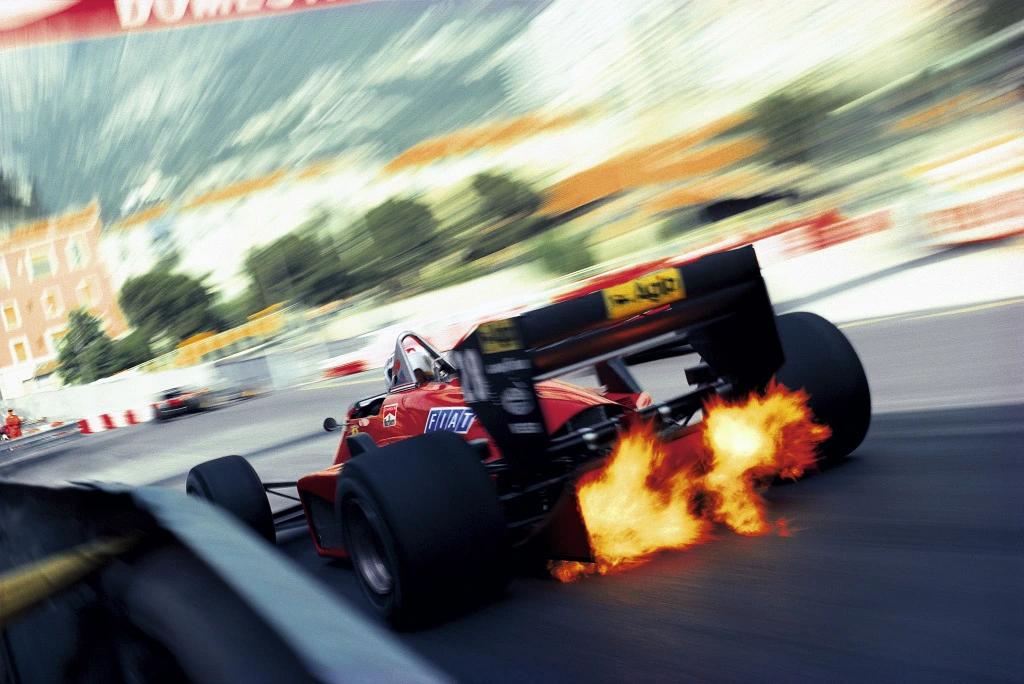Everyone has their preference, but who is statistically the best driver in Formula 1 history The finest F1 driver in history is a discussion that has, and will continue to, rage as long as Formula 1 exists, but we look at who the top drivers are analytically.
1. Lewis Hamilton - 105 wins
- First race: 2007 Australian Grand Prix
- World Championships: 7 (2008, 2014-15, 2017-20)
- Number of races: 350
- Number of wins: 105
- Number of pole positions: 104
- Career points: 4813.5
In terms of career victories and total career points, Lewis Hamilton is the finest Formula 1 driver to have ever graced a circuit. The Brit has taken wins in 30 different nations, won a race in practically every season he’s raced in, and is presently tied on world championships with Michael Schumacher, having just lost out on earning an eighth world title in 2021 to Max Verstappen. Hamilton holds several of Formula 1’s records and, with a deal that stretches until the end of 2023, he seems to be able to push even farther ahead on many of them.
While he missed becoming champion in his first season by a single point, he became the (then) youngest world champion the following year. Fourteen years later he’s captured six more titles, and is aiming for an eighth.
Read also: Andrea Stella: Ferrari's Recuperation Benefits and Hurts McLaren
2. Michael Schumacher - 91 wins
- First race: 1991 Belgian Grand Prix
- World Championships: 7 (1994-95, 2000-04)
- Number of races: 308
- Number of wins: 91
- Number of pole positions: 68
- Career points: 1566
When evaluating the best F1 driver, Michael Schumacher quickly jumps to mind. He was, until the arrival of Hamilton, the face of supremacy in Formula 1: seven titles (five of them consecutive), a seemingly impossible amount of victories, persistent competition - Schumacher transformed the game in F1 with his mix of commitment, passion, and, of course, sheer skill.
While he took two titles with Benetton, he’s probably more well-known for his time with Ferrari. He joined the squad in 1996 and, despite several highs and lows in the following years, the combination struck gold in 2000. What followed in the next five years were five world titles, 48 victories, and a record book that included Michael Schumacher’s name in practically every area.
His second spell in F1 wasn’t as successful as his first, delivering a solitary podium to add to his collection. However, his 91 victories, 155 podiums and 68 pole positions still put him high up in any statistical study.
3. Max Verstappen - 61 wins
- First race: 2015 Australian Grand Prix
- World championships: 3 (2021, 2022, 2023)
- Number of races: 203
- Number of wins: 61
- Number of pole positions: 40
- Career points: 2917.5
Max Verstappen, son of veteran Formula 1 driver Jos, spent just one year in car racing before making his F1 debut. While he got to grips with the single-seaters in the Florida Winter Series, his junior career is most recognized for his 2014 European Formula 3 campaign when he finished third in the championship behind Tom Blomqvist and title-winner Esteban Ocon.
This single season, in which he took 10 victories from 32 races, including six consecutive triumphs, was enough to earn him the step up to F1, securing a spot at Red Bull sister team Toro Rosso for 2015 and becoming the youngest-ever grand prix driver. His debut F1 season yielded modest success in middle-of-the-pack equipment – 10 points-paying finishes from 19 races – but it was his second season when he truly proclaimed his arrival in F1.
Getting the call up to the senior Red Bull squad five races into the 2016 season, replacing the ailing Daniil Kvyat, Verstappen scored his maiden win instantly at the Spanish GP, boosted by Mercedes team-mates Nico Rosberg and Lewis Hamilton crashing out together on the first lap.
He’d take a further nine victories by the conclusion of the 2020 season, before the modified technical restrictions for the 2021 season resulted in Red Bull building a vehicle genuinely capable of challenging for the world title. With the Red Bull substantially closer to the formerly dominant Mercedes vehicle, Verstappen and Hamilton engaged in a grueling, season-long struggle for the title. The contest came down to the penultimate lap of the final race, with Verstappen narrowly grabbing the honors ahead of the seven-time world champion for his first championship since karting in 2013.
Read also: F1 2024: Comparative Team- Mate Statistics and Their Patterns
4. Sebastian Vettel - 53 wins
- First race: 2007 United States Grand Prix
- World Championships: 4 (2010-13)
- Number of races: 300
- Number of wins: 53
- Number of pole positions: 57
- Career points: 3098
While his form in Formula 1 faded towards the conclusion of his career, there was a period when Sebastian Vettel was practically untouchable.
Vettel’s F1 career started in 2007 and, in his first three years, he took nine podiums and five victories, albeit this was nothing on what was to follow. Over the following four years he became the face of F1, winning four straight championships and becoming the youngest world champion in the process (taking the honor from Lewis Hamilton). He also secured the records for most podium finishes in a season, most victories in a season, most pole positions in a season, most laps led in a season, most consecutive wins, most consecutive grand slams, and most wins from pole position in a season.
Unfortunately for Vettel the regulatory changes in 2014 didn’t suit Red Bull (or him), and the team swiftly dropped back down the pack. He went from nine straight wins in the final nine races of the 2013 season to not winning a single race until 2015, and since that 2013 season he’s ‘only’ collected 14 wins. Despite that he was still widely considered as one of the finest drivers on the grid until his retirement at the conclusion of the 2022 season, and his list of records is expected to continue for many more seasons.
5. Alain Prost - 51 wins
- First race: 1980 Argentinian Grand Prix
- World Championships: 4 (1985-86, 1989, 1993)
- Number of races: 199
- Number of wins: 51
- Number of pole positions: 33
- Career points: 768.5
It was Alain Prost's methodical manner that allowed him to go up against Ayrton Senna - the acrimonious conflict that he is most renowned for. His secret weapon was brainpower, as well as speed, and he possessed a natural accuracy in his driving that allowed Prost to become France's first world champion in 1985.
In 1987 he beat Jackie Stewart's record of 27 victories and a year later McLaren won 15 out of 16 races during the season, which is evidence to both Prost and Senna's brilliance. Prost stayed at the peak of his game until his retirement, capturing his fourth and last victory for Williams at 38 years old.
Read also: McLaren established a clear F1 2024 aim as Red Bull
6. Ayrton Senna - 41 wins
- First race: 1984 Brazilian Grand Prix
- World Championships: 3 (1988, 1990-91)
- Number of races: 161
- Number of wins: 41
- Number of pole positions: 65
- Career points: 610
One of motorsport's most iconic individuals, Ayrton Senna maintains the bar for sheer skill and charm.
His depth of dedication to a lap and his persistent desire to push the boundaries for more has meant that Senna holds a particular place in the hearts of many racing fans. His three championships offer a feeling of what may have been had he not perished during the San Marino Grand Prix in 1994. A mix of natural speed and insatiable ambition gave Senna an advantage rarely seen.
Such is his legacy that even over thirty years after his death, Senna's cars and how he won his greatest F1 title are still spoken about.
7. Fernando Alonso - 32 wins
- First race: 2001 Australian Grand Prix
- World Championships: 2 (2005-06)
- Number of races: 398
- Number of wins: 32
- Number of pole positions: 22
- Career points: 2329
Fernando Alonso is a two-time world champion with a reputation as a brave, aggressive racer, while his career can be defined as much by what didn’t come as the two wins he won.
The Spaniard spent three years in Formula 1 before collecting the first of his two successive triumphs, claiming the title with a commanding 21 point advantage over Kimi Raikkonen. His second win the year later was a 13-point advantage over the legendary Michael Schumacher, yet here is when Alonso’s good fortune seemed to run out.
A transfer to McLaren in 2007 to join then-rookie Lewis Hamilton saw him finish the season in third, just one point behind champion Kimi Raikkonen and behind Hamilton, who had the same points but more victories. His 2010 switch to Ferrari appeared like it might pay off as he entered the last race of the season in the lead, but a combination of his getting stranded behind Vitaly Petrov and a win for Sebastian Vettel meant Alonso had to settle for second. He missed the 2012 title by just three points (again to Vettel), and was second again in 2013 (though was 155 behind the German).
He returned back to McLaren in 2015 – just in time for the terrible McLaren-Honda partnership – and after four arduous years he left at the end of 2018 – just before McLaren made their way back towards the top of the grid.
Even the 2021 season was harsh to Alonso — competing for the midfield Alpine team he achieved a fourth place at the 2021 Hungarian Grand Prix (the best he’d finished for seven years) while his team mate Esteban Ocon went on to win, however a long-awaited 98th podium eventually arrived in Qatar.
A stunning switch to Aston Martin for the 2023 season proved to be a masterstroke, as the squad soared up from middle to the top of the pack. Alonso begun the season with two third places - giving him his famous 100th career podium in the 2023 Saudi Arabian Grand Prix.
.png)
